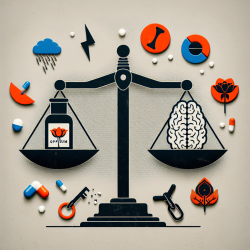Understanding the Role of Opium Tincture in Opioid Use Disorder Treatment
Opioid use disorder remains a significant public health challenge, demanding innovative and effective treatment strategies. Recent research titled "Long-term detoxification of opioid use disorder with opium tincture assisted treatment" provides compelling insights into the potential benefits of using opium tincture in treating opioid addiction. This study, conducted by Tehrani et al., presents a promising approach that could enhance treatment outcomes for individuals struggling with opioid dependence.
Key Findings from the Study
The study involved 90 patients with opioid use disorder who underwent a gradual detoxification process using opium tincture under the Congress 60 protocol. The results were noteworthy:
- Low Relapse Rate: The relapse rate was observed to be 16.7%, significantly lower than rates reported in other treatment protocols.
- Reduction in Cravings: All sub-scales of the Desire for Drug Questionnaire (DDQ) showed a significant decrease in cravings over the study period.
- Improvement in Mental Health: There was a marked reduction in depression and anxiety levels, as measured by the Beck Depression Inventory (BDI) and Beck Anxiety Inventory (BAI).
- Enhanced Quality of Life: Participants reported improved sleep quality and overall quality of life, as assessed by the Pittsburgh Sleep Quality Index (PSQI) and WHO Quality of Life Questionnaire (WHOQOL-BREF).
Implications for Practitioners
For practitioners in the field of addiction treatment, these findings offer several implications:
- Consider Opium Tincture as a Viable Option: Given its lower relapse rates and improvements in mental health and quality of life, opium tincture could be a valuable component of treatment plans for opioid use disorder.
- Integrate Psychosocial Support: The Congress 60 protocol emphasizes psychosocial support, which appears to play a critical role in the success of the treatment. Practitioners should consider incorporating similar support structures in their treatment programs.
- Monitor and Evaluate Continuously: Continuous monitoring of cravings, mental health, and quality of life is essential to tailor interventions effectively and ensure sustained recovery.
Encouragement for Further Research
While the study presents promising results, further research is necessary to explore the long-term efficacy and safety of opium tincture in diverse populations and settings. Practitioners are encouraged to contribute to this growing body of knowledge by conducting additional studies and sharing their findings.
To read the original research paper, please follow this link: Long-term detoxification of opioid use disorder with opium tincture assisted treatment.










